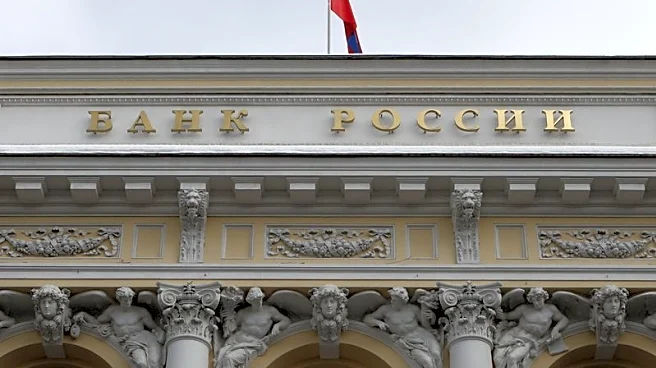What is the story about?
What's Happening?
Ukraine is commemorating 34 years of independence, with reflections from its first generation of lawmakers and activists on the enduring influence of Russia. Oleksandr Donii, a leader of student protests in 1990, recalls the struggle for autonomy and the rapid declaration of independence following the Soviet Union's collapse. Despite this separation, Russia's influence persisted through political pressure and social division, culminating in the full-scale invasion of Ukraine. Early decisions, such as the failure to remove Soviet-era lawmakers and the surrender of Ukraine's nuclear arsenal, are seen as pivotal moments that have shaped the country's current challenges. The Budapest Memorandum, intended to assure Ukraine's sovereignty, is viewed as ineffective, with Russia's annexation of Crimea and subsequent invasion undermining its promises.
Why It's Important?
The reflections on Ukraine's independence underscore the long-term impact of early political decisions and the ongoing struggle against Russian aggression. The failure to remove Soviet-era influences and the surrender of nuclear capabilities have left Ukraine vulnerable, highlighting the importance of strategic decisions in safeguarding national sovereignty. The Budapest Memorandum's ineffectiveness serves as a cautionary tale about relying on international assurances without concrete security measures. Ukraine's current push towards the European Union and NATO is driven by the urgent need to secure its independence and protect against further Russian encroachment. These historical lessons are crucial for understanding the geopolitical dynamics in Eastern Europe and the challenges faced by nations seeking autonomy from powerful neighbors.
What's Next?
Ukraine's future negotiations with Western partners will likely focus on securing stronger alliances and support to counter Russian aggression. The pursuit of NATO membership and closer ties with the European Union are expected to be central to Ukraine's strategy for ensuring its sovereignty and security. The international community's response to Ukraine's situation will be critical, as it may influence the balance of power in the region and set precedents for handling similar conflicts. Ukraine's leaders and citizens will continue to advocate for firm and decisive actions to protect their nation, learning from past compromises and striving for a more secure and independent future.
Beyond the Headlines
The reflections on Ukraine's independence highlight broader themes of national identity and resilience in the face of external pressures. The struggle for autonomy and the challenges of maintaining sovereignty amidst geopolitical tensions resonate with other nations facing similar threats. Ukraine's experience underscores the importance of historical context in shaping current policies and the need for vigilance in protecting national interests. The ethical implications of international agreements and the responsibilities of global powers in upholding them are also brought to the forefront, prompting discussions on the effectiveness of diplomatic assurances and the role of international law in conflict resolution.

















